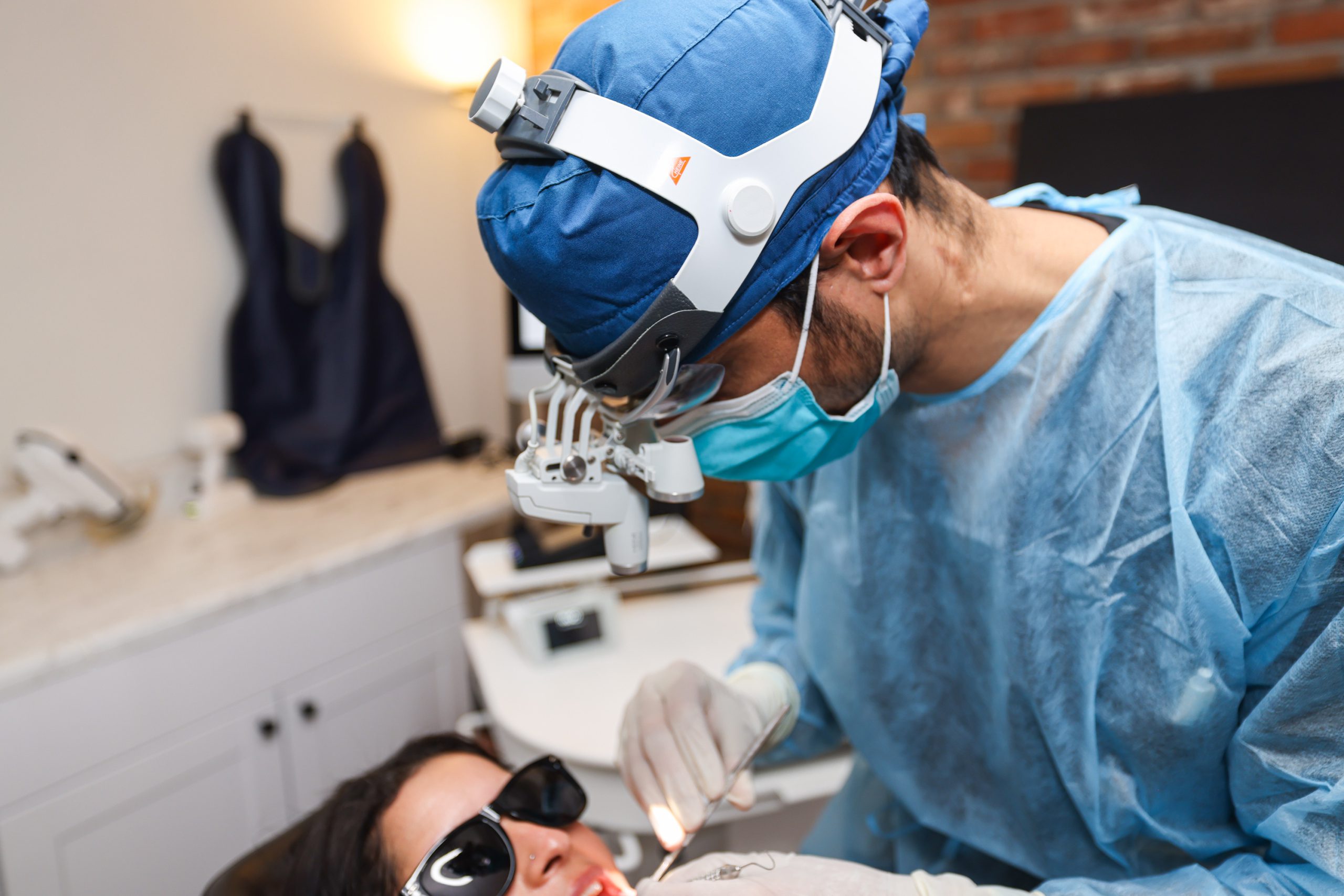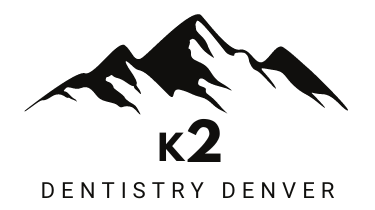Implant Overdentures: What are They and How Do They Work?
We explain what these prostheses are and in what situations they are necessary. If you require this service, we await you at K2 Dentistry in Denver and its surroundings.

Functionality
Overdentures are prostheses that rely on dental implants to obtain retention and support and prevent problems that occur with conventional dentures that tend to slip or loosen when laughing, eating, speaking or even sneezing.
Between four and six individual implants are used in the upper overdenture to ensure greater comfort for our patients and maintain their gustatory sensation while eating, while two to four of these types of implants are needed in the lower overdenture.
If you are in Denver, Colorado, and its surroundings, we will be happy to receive you at K2 Dentistry Denver and help you with this process so that you can recover your smile and feel more comfortable with your dental implants.
What Types of Implant Overdentures Exist and What Are Their Differences?
There are five types of overdentures, which can be fixed or removable according to your needs and budget for these implants. In both cases, you will feel comfort and naturalness in your denture.
We can implant any of these five overdentures in K2 Dentistry Denver, consult us to make an initial evaluation and determine which one best suits your characteristics.
1. Implant-supported overdentures
In this case, we screw two to six implants into the maxillary bone, thus retaining the existing bone and preventing its deterioration. Generally, two surgeries are required for this overdenture. In the first, the implant is installed in the maxillary bone, and in the second, it is uncovered to make the prosthesis according to your measurement.
One of the advantages of this overdenture is that it can be removed at bedtime for greater comfort or when it needs to be cleaned.
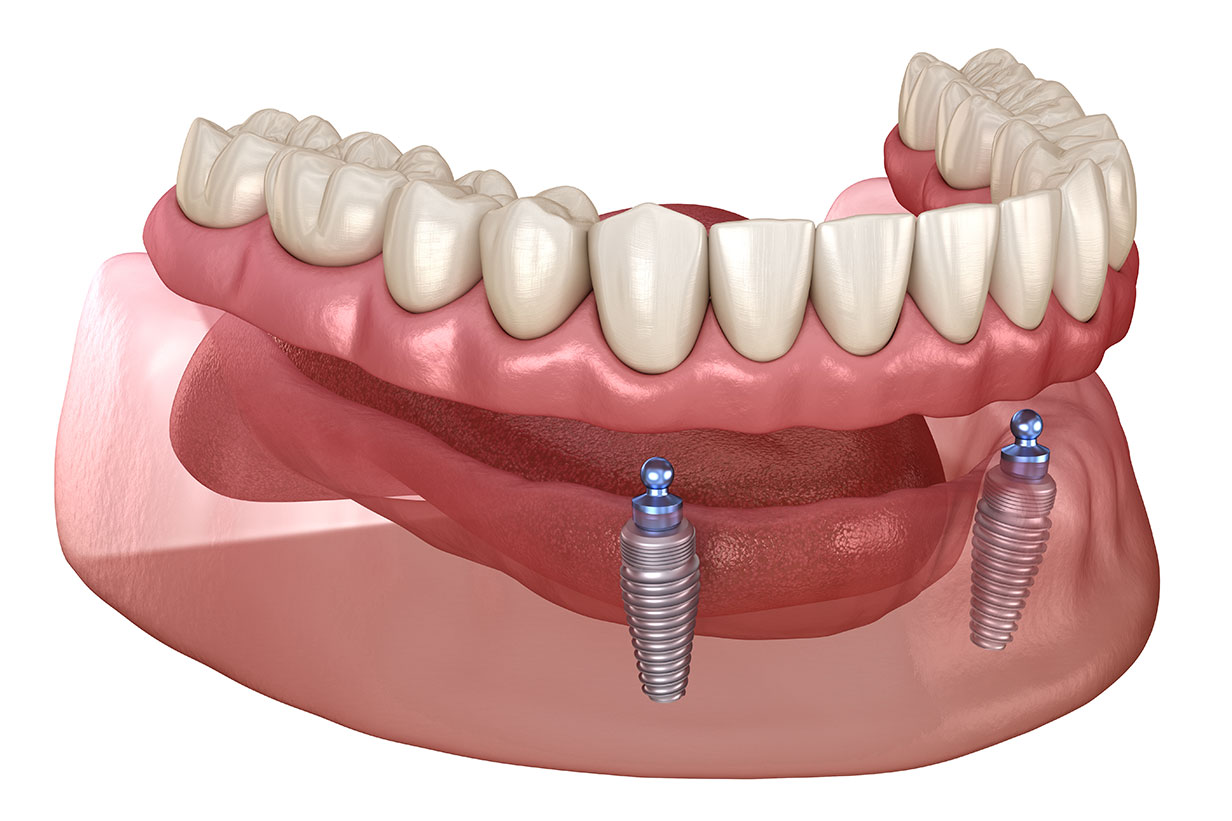
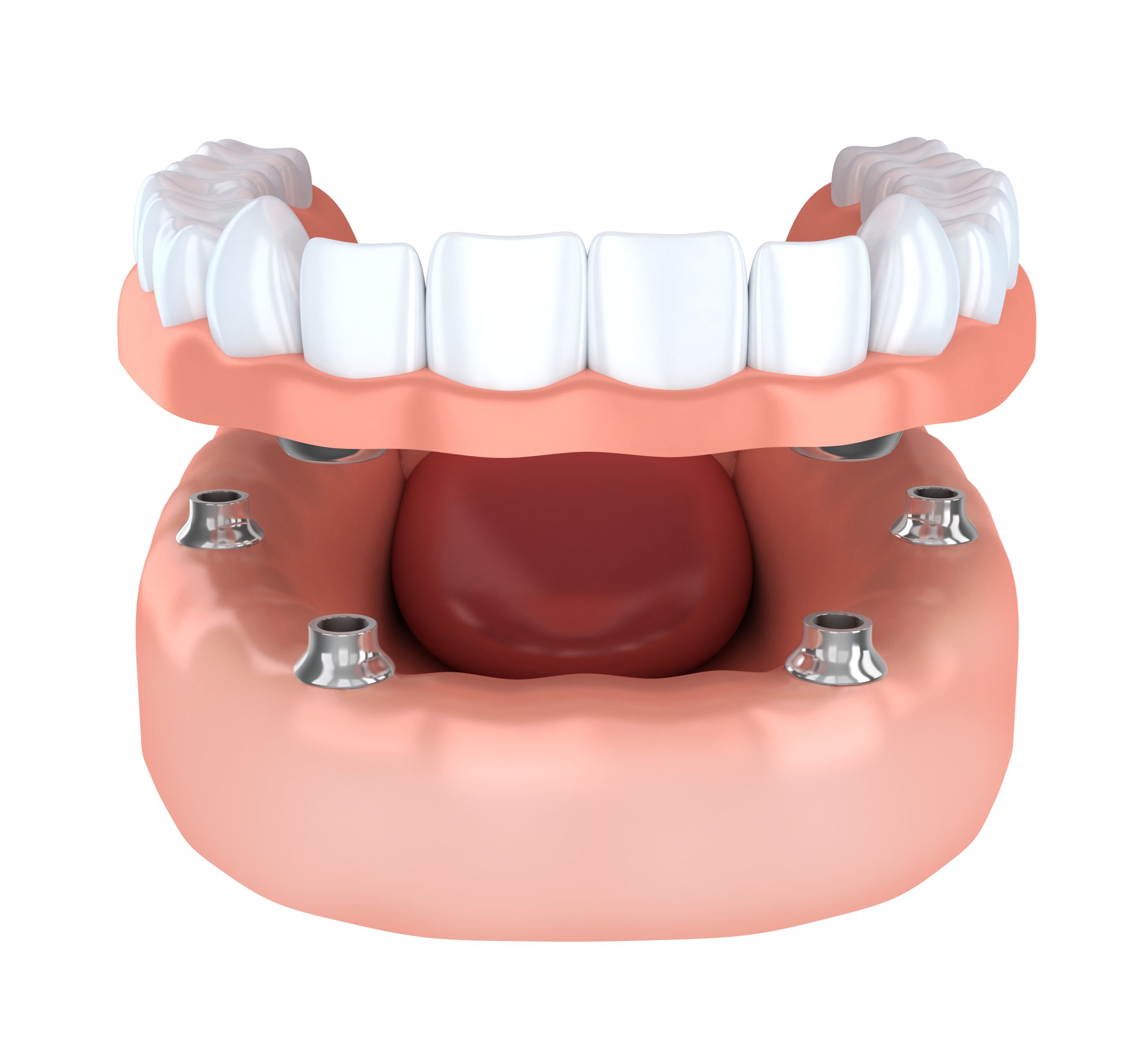
2. Fixed implant-supported overdentures
As the name implies, in this case, the implant cannot be removed by the patient, as it is fixed to the bone using screws and four dental implants. Therefore, the dentist's intervention is required to remove it.
This overdenture is known for being the most stable in its type, although cleaning it is not as easy or comfortable, as in the previous case, only the dentist can do it with their specialized instruments.
3. Bar-retained implant-supported overdentures
In this case, this overdenture is supported on implants that have a bar attached to which the denture is attached. Thus, the overdenture can be removed and incorporated whenever required, whether for sleeping or cleaning, providing greater security than a conventional denture.
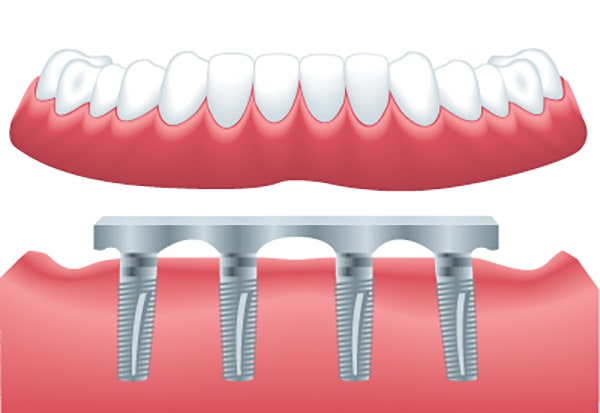
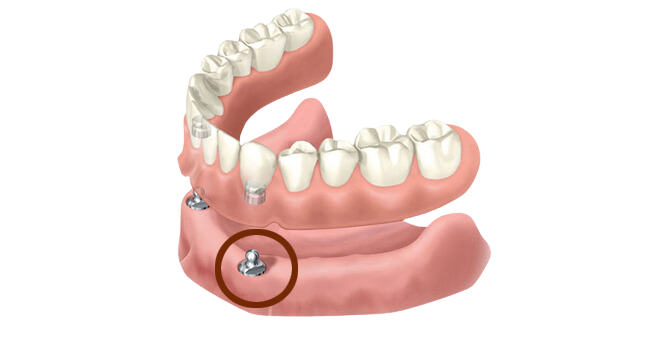
4. Ball-retained implant-supported overdentures
In this implant, ball-shaped supports are used, which connect with the denture, providing greater stability and functionality than a conventional one. Its cleaning is simple, as is the possibility of replacing the pieces.
5. Partial overdentures
These are useful in cases where the patient is missing only some teeth. Thus, perhaps what is required is a partial denture. Its function is similar to that of the complete implant- supported overdenture, in which the roots of the teeth are replaced with one or more implants so that the partial denture holds them.
With this overdenture, there will be a more natural appearance than a conventional partial prosthesis.
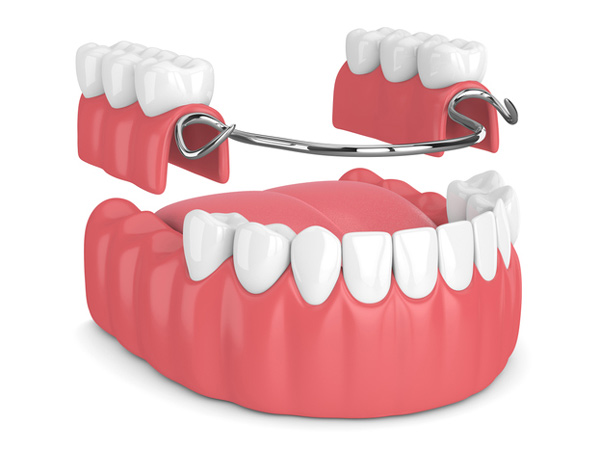

Its benefits
Overdentures have the advantage of being a definitive solution in cases where one or more teeth are lost. On the other hand, they do not pose a risk of becoming loose or sliding, and preserve the jawbone.
Contact us and leave it in our hands
If you are interested in an All-On-4 prosthetic procedure with K2 Dentistry Denver, contact us and allow us to accompany you in the process of improving your smile.
Where are we located?
We are at 1776 South Jackson Street Suite 720, Denver, Colorado, Zip Code 80210. You can call us at (720) 677-6160 or email us at info@k2dentistrydenver.com
Visit us Monday through Friday, from 9:00 a.m. to 5:00 p.m. and on Saturdays and Sundays from 9:00 a.m. to 9:00 p.m.
